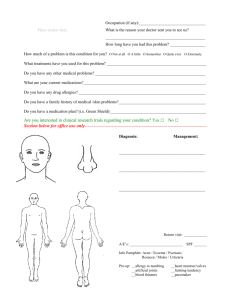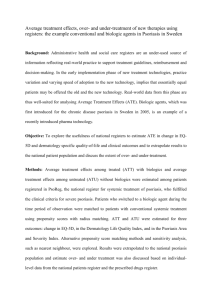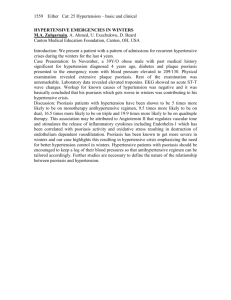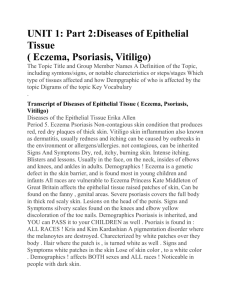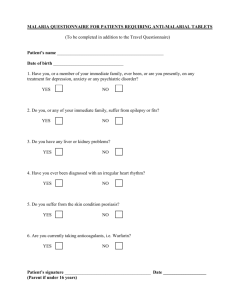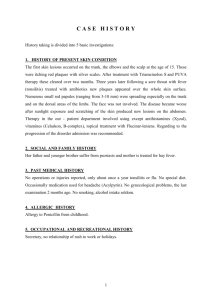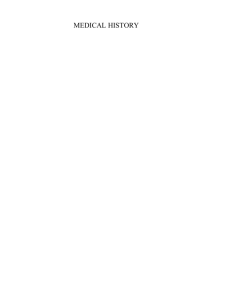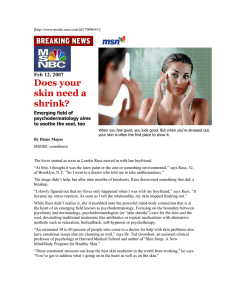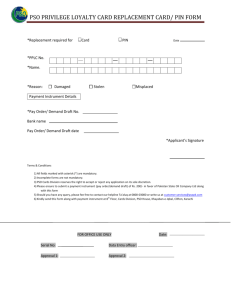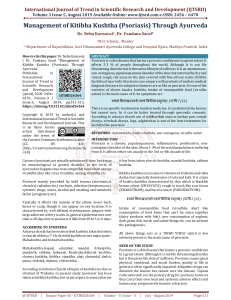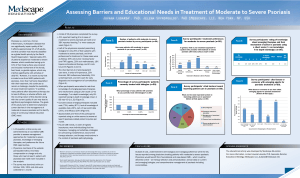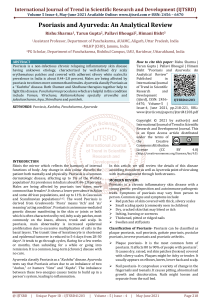FROM PSORIASIS TO A NUMBER Ann-Christine Frandsen
advertisement
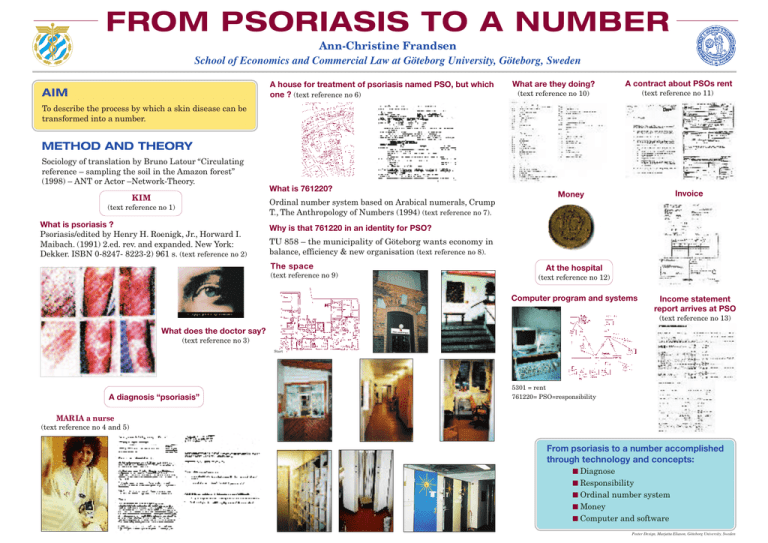
FROM PSORIASIS TO A NUMBER Ann-Christine Frandsen School of Economics and Commercial Law at Göteborg University, Göteborg, Sweden A house for treatment of psoriasis named PSO, but which one ? (text reference no 6) AIM What are they doing? A contract about PSOs rent (text reference no 10) (text reference no 11) To describe the process by which a skin disease can be transformed into a number. METHOD AND THEORY Sociology of translation by Bruno Latour “Circulating reference – sampling the soil in the Amazon forest” (1998) – ANT or Actor –Network-Theory. KIM What is 761220? Invoice Money Ordinal number system based on Arabical numerals, Crump T., The Anthropology of Numbers (1994) (text reference no 7). (text reference no 1) What is psoriasis ? Psoriasis/edited by Henry H. Roenigk, Jr., Horward I. Maibach. (1991) 2.ed. rev. and expanded. New York: Dekker. ISBN 0-8247- 8223-2) 961 s. (text reference no 2) Why is that 761220 in an identity for PSO? TU 858 – the municipality of Göteborg wants economy in balance, efficiency & new organisation (text reference no 8). The space (text reference no 9) At the hospital (text reference no 12) Computer program and systems Income statement report arrives at PSO (text reference no 13) What does the doctor say? (text reference no 3) Start A diagnosis “psoriasis” 5301 = rent 761220= PSO=responsibility MARIA a nurse (text reference no 4 and 5) From psoriasis to a number accomplished through technology and concepts: ■ Diagnose ■ Responsibility ■ Ordinal number system ■ Money ■ Computer and software Poster Design, Marjatta Eliason, Göteborg University, Sweden Key words: chain of translations, accounting in practice, space, place, time, money, value, associations, numbers, taken-for-grantedness Accounting numbers affect people in many ways. This is an important research issue. This thesis attempts to problematise the relation between accounting numbers and what they refer to; a relation that is typically taken-for-granted. This is done through field studies of accounting in practice and also through conceptualising accounting as a chain of translations. This conceptualisation focuses on how relations between people, things, movements and numbers are created in accounting documents, and on how accounting and its effects are then brought back to places of work. These associations are traced in three settings where accounting is taken for granted to a varying degree: the first is a psoriasis centre, the second a public transportation company and the third an investment company. Three pictures emerge, each with its own complexities and ambiguities – in themselves typical contemporary phenomena. The practice of accounting in the first setting is theorised as creating particular spatial formations. In the second, accounting shapes time as a way to produce space, that is, a particular spatial dynamics. In the last setting, accounting is claimed to produce value, or rather particular forms of valuing in space and time. These pictures form a ground for a theory that conceives of accounting in practice as a time/space/value machine. A theory is constructed around four concepts: The character of the associations, The integration of associations and the delimitation of movements, Order and its relation to change, The production of other spaces. Further, accounting in practice is claimed to go through three modes or phases. In the first, accounting enables construction of revenue and cost-focussed space/value relations. In a second, accounting enables revenue and cost-focussed time relations to reconstruct space and spatial dynamics. The last and final mode or phase is when accounting becomes taken for granted: time and space are "in place", value becomes coterminous with space and time. All this makes it possible to produce ever more abstract values, where things, people, and situations can be exchanged for one another or substituted by numbers. The thesis suggests that the practice of accounting produces new forms of space/time/value relations at the heart of everyday life and work. Tracing how this practice (re)translates numbers into money and vice versa, reveals accounting as a way of approaching the world in a subtle manner, and yet shaping that which can be thought, and even delimiting existence. The space/time/value relation created by accounting is a powerful base of personal and professional identities. Besides being a disciplinary force this relation permits certain experiences to emerge and excludes others. Space, time and money – a study of accounting in practice Abstract PhD AnnChristine Frandsen Göteborg University, School of Business, Economics and Law Department of Business Administration P.O. Box 610 SE405 30 Göteborg, Sweden
